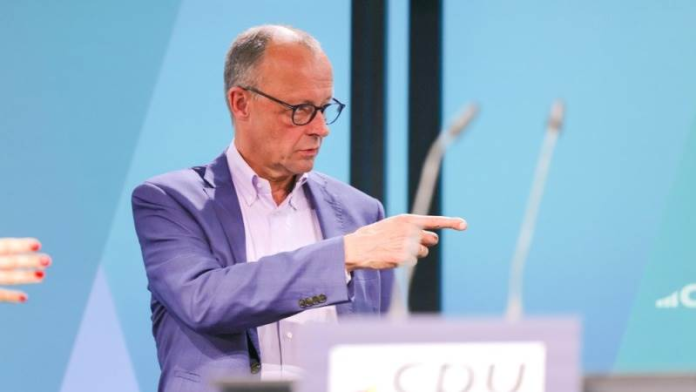Incoming German Chancellor Friedrich Merz unveiled his inaugural Cabinet appointments, assembling a team of seasoned policymakers, corporate expertise, and staunch conservative allies to steer his agenda of economic revitalisation and security reform, according to Politico.
Merz tapped Johann Wadephul, a defence specialist and long-standing foreign policy voice within the Christian Democratic Union (CDU), as Foreign Minister, tasking him with navigating escalating global tensions.
In a signal of prioritising Germany’s industrial revival, former energy executive Katherina Reiche – CEO of utility giant E.ON until 2022 – will lead the Economy and Energy Ministry, overseeing critical initiatives to decarbonise heavy industry while bolstering competitiveness.
The Chancellor’s focus on infrastructure modernisation is underscored by Patrick Schnieder’s appointment as Transport Minister. A veteran of transport policy debates, Schnieder faces immediate pressure to accelerate rail upgrades and EV charging networks.
Meanwhile, Karin Prien, ex-education minister of Schleswig-Holstein, takes federal charge of education reform, with her tenure likely to reignite debates over national standards and digital classroom integration.
A newly created Ministry for Digitalisation goes to Karsten Wildberger, fformer CEO of telecommunications firm 1&1, reflecting Merz’s pledge to end Germany’s “digital stagnation.” Wildberger will spearhead long-delayed projects, including AI governance frameworks and public sector IT modernisation.
Ensuring Cabinet cohesion falls to Thorsten Frei, Merz’s trusted lieutenant and former CDU/CSU parliamentary manager, who assumes the pivotal Chancellery chief role. Frei’s mandate includes enforcing discipline among ministers as Merz seeks to fast-track contentious reforms, from streamlining bureaucracy to expanding nuclear energy partnerships.
Merz reinforced CDU dominance in EU policy by appointing Gunther Krichbaum – a veteran advocate for deeper integration – as European Affairs Minister, while Serap Güler, a hardliner on migration, becomes International Cooperation Minister.
The choice of Wolfram Weimer, a conservative publisher and journalist, as Culture Minister signals intent to counter perceived left-wing cultural shifts, with observers anticipating clashes over public broadcasting reforms and heritage funding.
